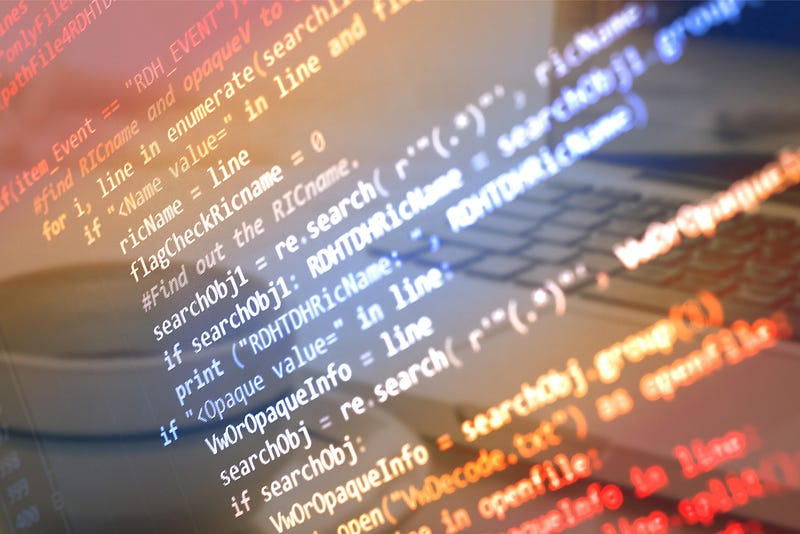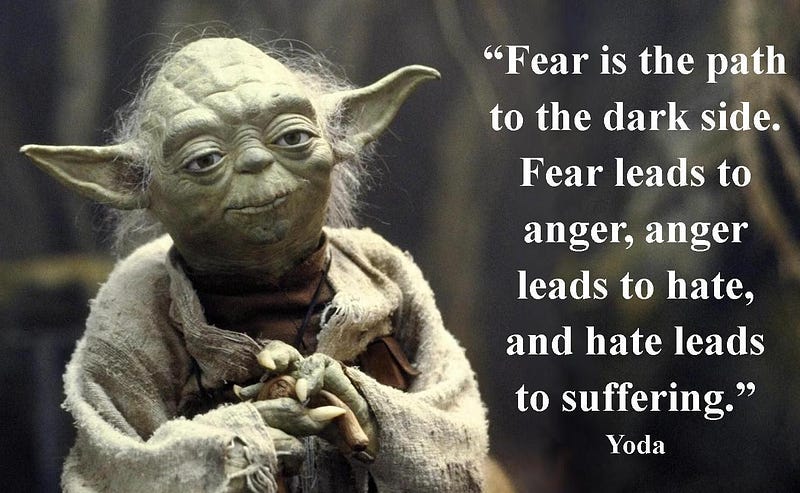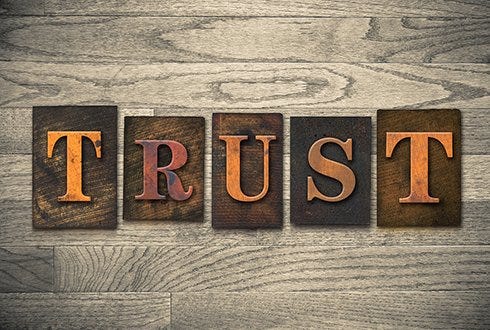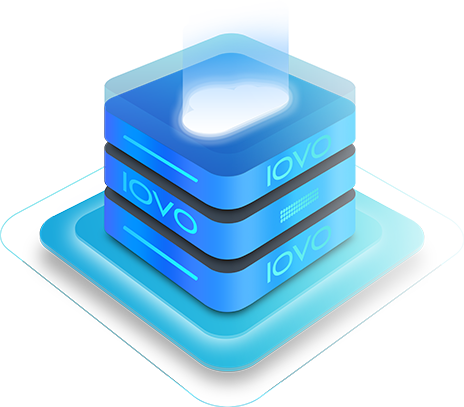Why We Need Open Source Now More Than Ever
The first time I found Linux was a divine experience.
The first time I found Linux was a divine experience.
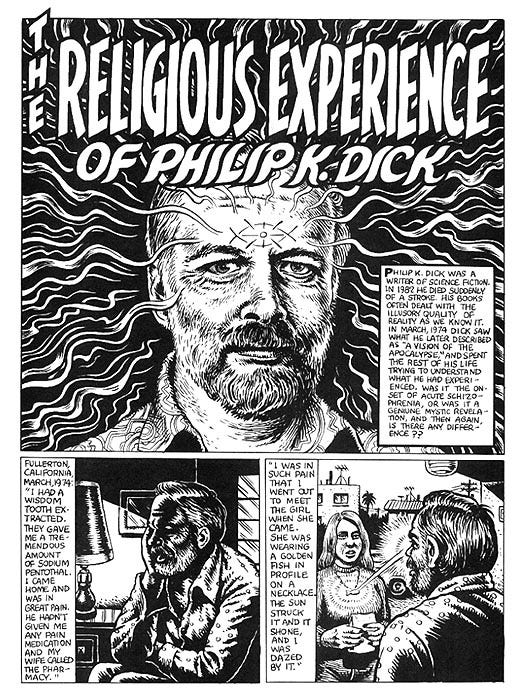
It hit me like a pink beam of illumination. I knew I was seeing something totally new and different, something radical, wonderful and even dangerous. Dangerous because it held the power to upend the entire software ecosystem forever.
And more than anything I wanted to be a part of it because I wanted to change the world.
And it did change the world.
Looking back, it all seems so obvious now.
But it wasn’t always.
I’m old enough to remember when open source was a war.
A recruiter once told me this Linux thing was nuts and I should learn Solaris because he had a thousand times the number of Solaris jobs. I told him he was crazy and in a decade Solaris wouldn’t even exist. He looked at me like I had two heads.
That’s back when Red Hat Linux was sold in boxes at Fry’s Electronics and when Steve Ballmer called Linux “communism” and “cancer.”
Oh how times have changed. Two decades later, even Ballmer knows he was dead wrong.
Open source ate the whole world. And nobody is living in communes because of it.
Businesses still make money and then some. Linux powers everything from the backend of the net, to the world’s most powerful super computers, to your mobile phone to the most cutting edge artificial intelligence apps.
Today, open source is the default. Every major technology starts there, whether that’s cloud, AI, mobile or containers. If you’re young and just getting started in tech, open source was always there like a tree or a river. You’ve never lived without it. Github and development teams that span the world are the norm, not the exception.
It’s so much the norm that Microsoft, once the master of the proprietary-or-die-mantra, just bought Github for a cool $7.5 billion dollars.
If you grew up with Slashdot when Reddit was a just a glimmer in two university student’s eyes that’s a tremendous shock to the system. The standard icon for Microsoft on Slashdot in the old days was Bill Gates with a Borg eye. Microsoft was the dark matter of open source. They were the Borg, Sauron and Darth Vader all rolled into one.
Microsoft’s philosophy back then was “embrace, extend and extinguish.” They’d take any open project or open standard and slowly layer in proprietary extensions and hooks as an insidious way to corrupt and co-opt it. Like the Borg their goal was total assimilation. Take over everything with their proprietary virus, infect it from within and take complete control of it.
Today, Microsoft openly embraces other operating systems and they’ve moved from “Windows everywhere” to games, AI and public clouds, playing nicely in the sandbox with all the other children. You can even install a Linux subsystem on Windows.
Mind blown.
But the war of open source is not over.
It’s only just begun.
Today there’s a new front in the war, one I never expected but one that will make the old war between proprietary software and open software look like a war of sticks and stones in the face of nuclear weapons.
And the only thing at stake is everything.
Open Source as a Way of Life
Open source is so much more than source code I can download and change myself.
It’s a way of being and a way of looking at the world.
But let’s start with code.
The question in the early days of open source was whether closed or open code was better for the world?
Would we destroy the competitive advantage of companies that spent billions to build their proprietary empires? Could open source create anything but crappy clones of those closed stacks backed by years of R&D, or were they doomed to build nothing but cheap knock-offs?
Like an emerging economy that started off making low skill products but evolved into making state of the art products, it took a long time for innovation to come to open source. In the early days open source was like Japan in the 1960’s and 1970’s. “Made in Japan” meant cheap. But by the 80’s and 90’s Japan leap-frogged to a new level, developing their own killer companies. Pretty soon they made some of the most coveted things in the world from cars, to TVs, to music players.
The same happened with open source. Open source in the early 90’s meant cheap. The only selling point was that it cut out costs at the expense of lots of features. Back then almost all research and development started with closed source. Big companies spent billions developing their ideas from web servers to databases to analytics engines.
But over time, open source got more and more sophisticated. Linux helped build and spread the model of large scale, distributed, open development. Soon thousands of projects exploded onto the scene. The dominate web server went from Netscape’s Enterprise server and Microsoft’s IIS, to the Apache web server.
And then a funny thing happened. Projects started as open instead of closed.
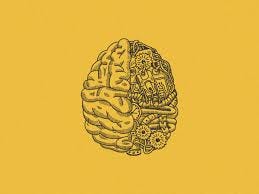
Today that’s the dominant way of doing things. Cloud, AI, big data, mobile and containers all started with open source. In the past they would have started in a big company’s research lab.
Along the way, companies found that sharing works better.
Much better.
They can’t hire everyone they need to build software. Even if they wanted to, that’s millions and millions of lines of code. They need the wider ecosystem of cutting edge programmers who can’t be bought or bullied, people who are so valuable they can work wherever they want.
Instead companies work as frenemies, developing dynamic cores in the open they all share and build on.
Companies may layer proprietary frameworks on top of that open core but more and more even that is giving way to pure open source models. In the last few years a number of big companies crashed and burned with their proprietary overlays to OpenStack. Mostly those add-ons were cleaner interfaces, more sophisticated installers, upgrades and monitoring. They took advantage of the early stage ugliness of OpenStack and its democratic and messy development model.
At first those slick interfaces and installers seemed to have a huge advantage over the sprawling and difficult to configure cloud platform. They boasted better and faster deployments, stronger networking and prettier interfaces.
Yet one by one they failed because they couldn’t keep up with the rapid rate of change to the underlying stack, built with teams of tens of thousands of programmers around the world. They wound up having to freeze development on old versions and increasingly deal with bugs long fixed in newer versions.
Open models are slow and move in fits and starts at first, as groups of people compromise and work together at a distance but in the end they always win. They move like the sea wearing down the stones to sand. Eventually no stone can stand against the steady power of the almighty sea.
As Churchill said, “Democracy is the worst form of government, except for all the rest.”
That’s how society grows and changes too. We develop as a society by slowly opening ourselves to change, chipping away at old outdated structures and ideas and replacing them with open frameworks that allow more innovation at the edges instead of the middle.
That’s where we are today. Open source won the war.
Or so we thought.
Turns out we just won the battle.
But there’s a brand new set of proprietary threats on the horizon.
Vast Oceans of Human Experience
Closed data and the closed algorithms are the war of the next decade and beyond.
The Economist called data “the new oil.”
Massive tech firms like Google, Amazon and Facebook pile up vast fortunes of human experience. With each passing minute that fortune grows deeper and wider.
That’s because everywhere we go, we leave long trails in the digital ether.
Those trails aren’t just innocent emails and Uber rides to that little Italian place you love and likes of your favorite bands. They’re a digital fingerprint of who you are and what you believe.
These companies know who we talk to, who we love and who we hate, where we work, what we say and think and dream. Their algorithms dig into our lives, dissecting us layer by layer, learning more and more about us every single second of every day. In the not too distant future they’ll likely know us much better than we know ourselves.
In many ways they already do.
In the book Homo Deus, Yuval Noah Harari writes of a study Facebook did on its algorithms:
“The Facebook algorithm is a better judge of human personalities and dispositions than even people’s friends, parents and spouses…The algorithm’s predictions were compared with those of work colleagues, friends, family members and spouses. Amazingly, the algorithm needed a set of only ten Likes in order to outperform the predictions of work colleagues. It needed seventy Likes to outperform friends, 150 Likes to outperform family members and 300 Likes to outperform spouses. In other words, if you happen to have clicked 300 Likes on your Facebook account, the Facebook algorithm can predict your opinions and desires better than your husband or wife!”
Very few people understand how much of our lives we leave online.
We went from a society with little to no digital technology in the 1970s and 80s, to one where the digital world dominates every aspect of our lives.
Everyone we talk to, everything we buy, everywhere we go or stay, everything we think or dream about lives in some database on the net beyond like a corporate firewall. Most of that data seems pretty boring to you probably. Maybe you’re even someone who says “I don’t care what they know because I’ve got nothing to hide.” But even the most mundane data can be tremendously revealing, telling someone who you are and where you go.
And no matter who you are, whether you know it or not, you do have something to hide.
Don’t believe me?
In a famous Ted Talk on privacy, Glenn Greenwald said “If you really believe you have nothing to hide then just give me the password to your private email. I’ll go through it every day for three months and then dump whatever I find interesting to social media.”
Still think you have nothing to hide?
Did you say something bad about your neighbors or your family or say something others might find horrifying? Did you call your boss an asshole, not take a shower for a week, throw up in a friend’s tub, show up drunk to an important meet, secretly hate something about your significant other you never told him or her, take drugs, flirt with a co-worker or steal pens from work?
Or maybe you just take Uber or Lyft everywhere?
Those companies know where you go and how often you go there. Use a credit card and you just created an easy link to where you were at a specific point in time. What did you buy? Who did you go and see? What do you want and what do you like? How often do you go to that favorite coffee spot downtown and at what times?
Totalitarian and democratic regimes alike are sucking up that data with relish, building massive distributed profiles of all their citizens. That might not seem like a big deal if you live in a stable democracy. After all they’re only going after the “bad guys,” right?
The problem is that who the “bad guys” are changes with time and with who’s in power.
In simpler times it might just be politics as usual: the left targeting gun firms when they’re in charge or the right targeting abortion clinics when they get the reigns.
But in more complex times like what we’re seeing now, all of that data becomes a dark and sinister force that lurks beneath the surface, ready to burst free and tear us all apart. When psychopaths take control of a society, they don’t play by the same rules we do and that means we’ve just handed them the keys to total control.
Suddenly that data lets them systematically hunt down and murder the opposition, gun down journalists, torture activists and spread fear across the land.
Maybe you think it can’t happen? You live in a sophisticated democracy and society, right?
You’re wrong.
Societies can and do collapse.
It’s the rule of history. Not the exception.
And today, everywhere democracy seems to be dying of natural and unnatural causes, as a new generation of monsters finds the exploits in rule based societies we’ve enjoyed since the end of the horrific second world war. The greatest generation is dying off fast. Few people are around to remember the horrors of fascist and communist regimes and fifty million people dead. When memory fades, the darkness starts to gather again, in the low places at first, hidden and out of sight and then suddenly it spreads without warning. And onto the stage steps a psychopath ready to reap the whirlwind of fear and rage that lies seething beneath the heart of the world.
You see, psychopaths know something most people don’t.
The rules that govern a society are not real.
They’re just figments of our imagination.
They’re something that generations of men and women come to agree on, implicitly and explicitly through a complex process that happens at an unconscious and interpersonal level.
Over time, those rules act as the glue that keeps societies together. They give us a common dream and a reason to work together across our vast divisions. They’re a great myth that animates us all and sets us in motion for decades or centuries, allowing us to work across space and time on a common goal.
But psychopaths see the rules for what they really are: a great myth.
All they need to bring society crashing down is destroy our faith in them.
And that’s exactly what they do, they find the inherent contradictions and the loopholes and they ruthlessly exploit them. The more they do it the more it erodes the very foundations of society. The cracks in society become fissures and then stress fractures.
Soon we don’t trust the rules and then the rules collapse and with them goes our world.
Again and again throughout history we see the path from freedom to tyranny move with terrifying speed, as societies crumble and newly powerful madmen take center stage and “bury the putrid corpse of liberty.”
And once those men come to power it’s nothing but smooth determinism from there.
Paranoia. Hate. Fear. Chaos. Blood.
As Yoda said “Fear leads to anger, anger leads to hate, hate leads to suffering.”
It’s a violent storm that knows no end for decades until finally, like a cancer, its eaten so much of the host that there’s nothing left and it dies a stunning and horrific death, having taken the lives tens of thousands or millions with it.
But we do have one chance left to stop the slide.
We have to move fast but it can be done.
And one way or another it will be done. Either we do it now before the chaos or we do it in the ashes and ruins of what’s left as we rebuild our world once more.
So what do we do?
Open source and decentralize everything.
The data. The business models. The source code. The algorithms.
Just Get Yourself Free
Open source and decentralization are about so much more than code.
Open source can change the very way our world works and give us a more stable and lasting system that works for the all of us.
When the Estonian government wanted to modernize their tiny country with a revolutionary digital democracy they knew that transparency, openess, federation and decentralization were the key.
Ask yourself, what is a healthy government really?
It’s a system of checks and balances. Those checks and balances are specifically designed to keep one group from seizing power over everyone else for too long.
Of course it’s human nature to want to take total control of everything but disaster always follows when that happens.
That’s because everyone believes their side is right but they’re wrong.
No. No. No, you say. My side is actually right. I know it.
And that’s the core of the problem right there.
“The greatest obstacle to discovery is not ignorance, it is the illusion of knowledge,” said historian Daniel Boorstin.
We all think we have it all figured out. But it’s just not true and it can never be true.
The fact is none of us are completely right. We don’t see the sum total of reality. Not even close. We’re just tiny fragments in a massive biological machine.
We can’t possibly see all that there is to see in life, or know all that there is to know. Each of us is hopelessly limited. There’s too much information to process. If we tried to process all the information in the world with our tiny minds, we’d collapse in a quivering heap.
Each side imagines they have all the answers but it’s a total and complete illusion. The wisest political design is one that allows different groups to come to power for a time and ensures they go gently into that good night after.
But today it’s not enough to have that at the government level alone.
We’ve gone too far down the path of centralization. Every mega-website is a treasure trove of data, ready to leak. And leak they do. There is not a single major organization on Earth, state or private, that has not suffered a data breach of epic scale in the last decade. Not a single one.
Don’t believe me?
Go look at this website and see just how many of the “trusted” central sources have lost your data. Go ahead. Take your time. See if there is a single major company or government entity you do business with that hasn’t gotten ripped off for all your personal information, from social security numbers to credit cards to where you live and who you know and love.
It’s time to face facts:
There is no such thing as a trusted central entity.
That’s because central entities are not fixed. They’re fluid. They change with the people that run them. Think of Equifax. They leaked the data of half of the United States.
They’re still “trusted.”
That’s right. We can’t remove them from the chain of trust.
Despite the fact that they have horrible, broken security and managed to lose literally half the population of an entire country’s data, we can’t get them out of there. When you verify a credit card or someone does a background check on you it’s still pulling from good old Equifax. Hell, they might even make money, because of all the credit monitoring companies they own that you now need to pay to monitor your credit forever.
The answer is we have to take them out of the equation all together. We can only do that with open systems, transparent systems, decentralized systems.
Think open source at the system level.
Open source trust.
Open source government.
Open source data.
Open source algorithms.
But to do that we have to take back control of our data for good.
That’s what Estonia did when they decided to build their systems. They didn’t assume all their institutions were infallible and needed total control over their citizen’s lives. In fact, they did the exact opposite.
“Data aren’t centrally held, thus reducing the chance of Equifax level breaches. Instead, the government’s data platform, X-Road, links individual servers through end-to-end encrypted pathways, letting information live locally. Your dentist’s practice holds its own data; so does your high school and your bank. When a user requests a piece of information, it is delivered like a boat crossing a canal via locks.”
We don’t have to wait for a government as enlightened as Estonia’s to do the work for us. In fact, we can’t. We’ll wait until doomsday because most governments are either backwards or broken messes.
That’s what projects like IOVO are for and a dozen other projects that want to put data back in our hands. The project let’s us take back control of our data and decide who gets to use it and when and why. It rips control out of the hands of big companies piling it up and building AI models about us to sell us more shit we don’t need.
It’s time to fight back.
Let the companies pay for access to it. That’s what cryptocurrency can do for us. You can’t program microtransactions with fiat money but you sure as hell can with crypto.
Oh the big behemoths of today will resist at first but in the end the sea will wear down the stone.
And in the end businesses will love it.
Why?
Because they’ll no longer have to build huge security infrastructures to keep all that data safe, a losing game anyway. The decentralized chains of the future that store our data with unbreakable encryption and role based access control will manage it for us. I’ll have a profile and a digital dashboard that lets me share what I want with who I want.
Imagine a decentralized Uber. They don’t have an ID system and sign up procedure. You just send them your profile, granting them access to you and they pay you for it. They don’t have to worry about storing your data and that means nobody can hack them and steal it.
And when they want to run an AI model to learn about you and design better solutions for you, they’ll pay you with micro-transactions too or you’ll just opt-out.
Now when decentralized Lyft comes along you just fire off your profile and they use the same system, a global system, untethered to individual companies.
That’s how we evolve. We move abstraction up the stack.
The Internet abstracted ways to do low level things, like sending information packets around the world. The next level is to automate the higher level functions. When everyone has a decentralized ID and a personal information wallet then we have a universal profile we can share and big companies don’t need to keep it for us.
At first these companies will resist out of sheer laziness and ignorance and lack of vision or because they’re just doing it the way it was always done.
But soon they won’t be able to compete against new companies that don’t bother building a massive backend to house their proprietary ID system. The costs alone will kill them so they’ll have no choice but to come along for the new ride in the open source and decentralized future that awaits us all.
The key to solving the privacy problems is not begging governments to do it for us.
We just have to build a better mouse trap.
And they’ll beat a path to our door.
############################################
If you love my work please visit my Patreon page because without it this blog simply wouldn’t exist.
Top Patrons get EXCLUSIVE ACCESS to so many things:
Early links to every article, podcast and private talk. You read it and hear first before anyone else!
A monthly virtual meet up and Q&A with me. Ask me anything and I’ll answer. I also share everything I’m working on and give you a behind the scenes look at my process.
Access to the legendary Coin Sheets Discord where you’ll find:
Market calls from me and other pro technical analysis masters.
The Coin’bassaders only private chat.
The private Turtle Beach channel, where coders share various versions of the Crypto Turtle Trader strategy and other signals and trading software.
Behind the scenes look at how I and other pros interpret the market.
###########################################
A bit about me: I’m an author, engineer and serial entrepreneur. During the last two decades, I’ve covered a broad range of tech from Linux to virtualization and containers.
